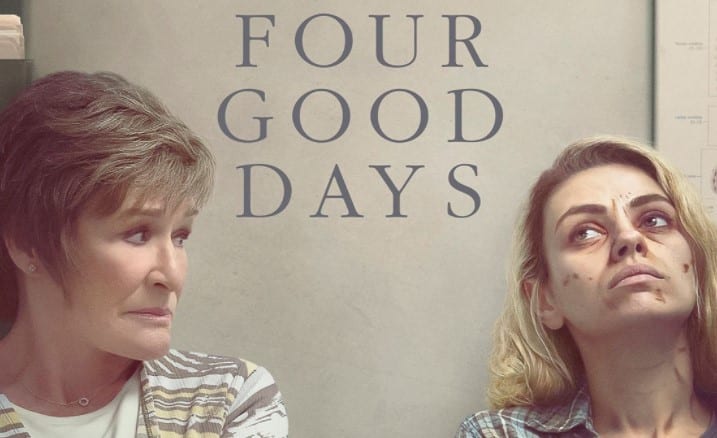Hollywood is certainly an interesting business. Telling emotional stories through films and television is definitely part of the equation, but so is turning a profit. And when you keep that in mind, creative integrity can sometimes get lost; particularly when it comes to hard-hitting addiction exposes. That point was recently brought up by The New York Times in an interesting new expose that took a critical look at some of the industry’s latest recovery films.
One of the new movies singled out was the high-profile drama, Four Good Days. This one happens to star Academy Award nominee Glenn Close and actress Mila Kunis in a story that touches on the opioid crisis. But even from the get go, Times writer Zachary Siegel questions the intentions behind this film. Is it trying to send an important message about addiction or is it trying to latch on to a popular headline trend and spark ticket sales?
Siegel has several critiques about the movie right off the bat. For one thing, Kunis’ character (who is dealing with an addiction) appears to be over dramatized, touching on a lot of negative stereotypes. As Siegel describes it, “she looks like Kurt Cobain in zombie makeup: unbuttoned flannel, skeletal frame, sunken eyes, bleached hair, pallid complexion.”
The Four Good Days premise, as Siegel explains, is not much better. This one involves Kunis working to stay clean for half a week, using a script that has one too many cliches. “We see a series of tense vignettes between mother and daughter, with Molly, played by Mila Kunis, screaming at Deb, played by Glenn Close,” Siegel adds. “There are many contrived lines thrown in for dramatic effect. Even on mute … the camera angles and lighting are every addiction movie cliché rolled into one.”
It is worth noting that Four Good Days has been barraged by multiple critics and does stand out as an addiction movie that sinks below the rest. But Siegel does raise a good point about these types of films and the studio interference that sometimes robs them of their authenticity. Happy endings, for example, are a major component of Hollywood productions and, as we all know, real life addictions don’t always turn out that way.
There are also sensational elements added in to these types of stories, which don’t truly echo the slower methodical process of recovery. So while there are benefits to getting more addiction stories promoted on the big screen, our hope is that they can be done in a more tasteful and sensitive way.







